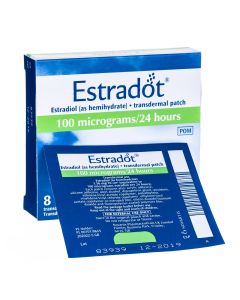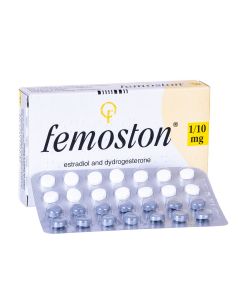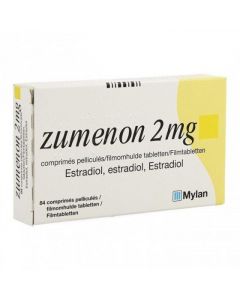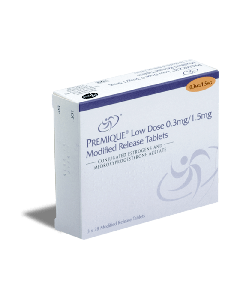Hormone Replacement Therapy (HRT)
Treatments
-
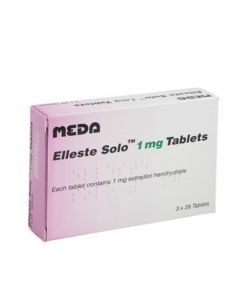 Elleste SoloFrom As low as £19.99
Elleste SoloFrom As low as £19.99- Relieves menopause symptoms
- Replenishes the body with Oestrogen lost due to the menopause
- Helps to prevent Oseoporosis
-
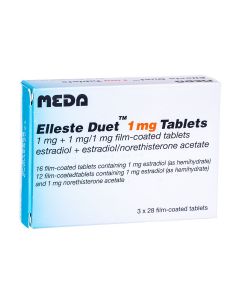 Elleste DuetFrom As low as £24.99
Elleste DuetFrom As low as £24.99- Reduces the symptoms of Menopause
- Available in 1mg and 2mg tablets
-
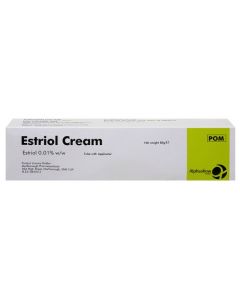 Estriol CreamFrom As low as £49.99
Estriol CreamFrom As low as £49.99- Helps to treat the vaginal symptoms of menopause
- Cream must be applied daily for full benefits
- Comes with applicator for ease of use
-
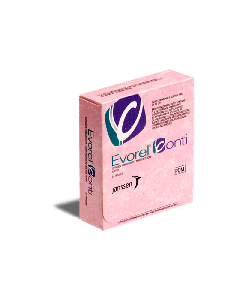 Evorel Conti Patch
Evorel Conti Patch- Relieve Menopause symptoms and prevent Osteoporosis
- The patches release lost hormones caused by Menopause back into the body
- Can treat, night sweats, sleep disturbance, anxiety, depression, sexual dysfunction and hot flushes
What is Hormone Replacement Therapy (HRT)?
Menopause is a natural part of the ageing process and is commonly referred to as 'the change'. Many women go through menopause between the ages of 45 and 55. It is when your periods begin to lessen or stop completely, and you can no longer naturally become pregnant.
‘The change’ happens when a woman’s hormones reduce as your ovaries stop producing as much oestrogen. Other factors which can cause menopause to begin include chemotherapy, the removal of the ovaries during surgery or some treatments for breast cancer.
Some women can experience premature menopause, which is when your period stops before the age of 45.
Symptoms of Menopause
The most common signs of menopause are:
- Low mood, mood swings, anxiety or depression
- Vaginal dryness
- Hot flushes and night sweats
- Reduced libido
- Memory loss
Menopausal symptoms are caused by a natural reduction in hormones. Your ovaries begin to produce less oestrogen and progesterone the older you become. Generally, by your mid-40s your periods will have become either longer or shorter, and by your 50s stop completely. This is due to your ovaries beginning to reduce the production of eggs.
What Causes Menopause
Menopause is a natural part of the aging process. Many women go through menopause between the ages of 45 and 55. It is when your periods begin to lessen or stop completely, and you can no longer naturally become pregnant.
‘The change’, happens when women’s hormones reduce as your ovaries stop producing as much oestrogen. Other factors which can cause menopause to begin include chemotherapy, the removal of the ovaries in surgery or some treatments for breast cancer.
Some women can experience premature menopause, which is when your period stops before the age of 45.
Diagnosis of Menopause
When should a doctor be contacted?
Many women prefer to go and see their doctor for advice when they notice the first signs of menopause. Your doctor will be able to confirm whether you are going though menopause by discussing your symptoms and taking a blood test. The blood sample will show them your hormone levels.
If you are concerned you may be going through premature menopause, your doctor will be able to make a diagnosis according to your family history and from the results of your blood tests. Being told you are going through premature menopause can be upsetting for women as it can affect their ability to naturally have children. There are a range of support groups women can turn to for advice and help such as The Daisy Network, which is for women who are experiencing premature ovarian failure.
What Are The Different Types of HRT Available
What are the different types of HRT available?
There are two forms of hormone replacement therapies available: combined HRT or oestrogen-only hormone replacement therapy. Combined HRT treatments such as Kliovance, Premique, Evorel, Elleste Duet and Femoston are more commonly prescribed, as you can only take oestrogen-only if you have had your womb removed. This is due to a link between oestrogen and womb cancer. Popular oestrogen-only options are Elleste Solo, Premarin and Zumenon.
Is HRT the right choice for me?
HRT patches can also provide effective relief from symptoms and are safe and easy to use. Evorel Conti HRT Patches, Evorel, Estradot, Elleste Solo MX and Evorel Sequi are commonly prescribed HRT patches.
Both forms of hormone replacement can come in the form of skin patches such as Estradot, tablets, gel or implants. You will be prescribed the lowest effective dose possible. HRT treatment is safe to use until your symptoms become easier to handle.
A doctor will be able to help you decided which form of HRT is most suitable for you. Usually, the treatment will take a few weeks to produce any results. That is why a doctor will recommend that you continue using the HRT for up to three months, to allow it time to work.
How can I get HRT?
Our UK based pharmacy stocks a variety of hormone replacement treatments. Simply fill in an online consultation with one of our qualified pharmacists, and they will prescribe the most appropriate hormone replacement therapy treatment for your needs.
Doctor Notes
Medicine Direct have an experienced clinical team of doctors, pharmacists and dispensers, all of whom are based in the UK. All are fully trained and qualified to provide appropriate and considered care across all areas of treatment we have available at our online pharmacy.
This means that no matter which member of our team is assigned to your case, you can rest assured that you are in the hands of a highly skilled medical professional, who possesses the compassion and clinical expertise to properly advise you on the best course of treatment.
We are fully regulated
All of our doctors and pharmacists are fully registered with both the General Medical Council (GMC), MHRA and the General Pharmaceutical Council (GPhC). Each member of our team has also worked in various clinic settings in the past, such as community pharmacies and NHS hospitals.

Sonia Khan
MPharm: 2076091
Pharmacist
This content has been clinically researched and medically written by Pharmacist Sonia Khan.
View Profile
